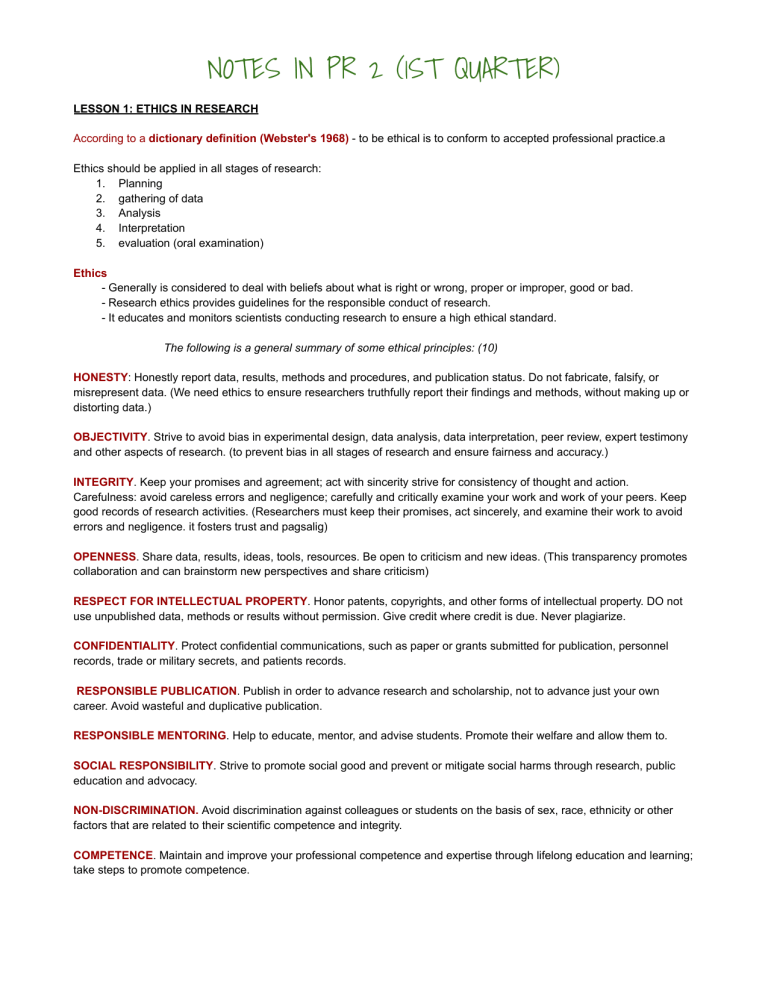
NOTES IN PR 2 (1ST QUARTER) LESSON 1: ETHICS IN RESEARCH According to a dictionary definition (Webster's 1968) - to be ethical is to conform to accepted professional practice.a Ethics should be applied in all stages of research: 1. Planning 2. gathering of data 3. Analysis 4. Interpretation 5. evaluation (oral examination) Ethics - Generally is considered to deal with beliefs about what is right or wrong, proper or improper, good or bad. - Research ethics provides guidelines for the responsible conduct of research. - It educates and monitors scientists conducting research to ensure a high ethical standard. The following is a general summary of some ethical principles: (10) HONESTY: Honestly report data, results, methods and procedures, and publication status. Do not fabricate, falsify, or misrepresent data. (We need ethics to ensure researchers truthfully report their findings and methods, without making up or distorting data.) OBJECTIVITY. Strive to avoid bias in experimental design, data analysis, data interpretation, peer review, expert testimony and other aspects of research. (to prevent bias in all stages of research and ensure fairness and accuracy.) INTEGRITY. Keep your promises and agreement; act with sincerity strive for consistency of thought and action. Carefulness: avoid careless errors and negligence; carefully and critically examine your work and work of your peers. Keep good records of research activities. (Researchers must keep their promises, act sincerely, and examine their work to avoid errors and negligence. it fosters trust and pagsalig) OPENNESS. Share data, results, ideas, tools, resources. Be open to criticism and new ideas. (This transparency promotes collaboration and can brainstorm new perspectives and share criticism) RESPECT FOR INTELLECTUAL PROPERTY. Honor patents, copyrights, and other forms of intellectual property. DO not use unpublished data, methods or results without permission. Give credit where credit is due. Never plagiarize. CONFIDENTIALITY. Protect confidential communications, such as paper or grants submitted for publication, personnel records, trade or military secrets, and patients records. RESPONSIBLE PUBLICATION. Publish in order to advance research and scholarship, not to advance just your own career. Avoid wasteful and duplicative publication. RESPONSIBLE MENTORING. Help to educate, mentor, and advise students. Promote their welfare and allow them to. SOCIAL RESPONSIBILITY. Strive to promote social good and prevent or mitigate social harms through research, public education and advocacy. NON-DISCRIMINATION. Avoid discrimination against colleagues or students on the basis of sex, race, ethnicity or other factors that are related to their scientific competence and integrity. COMPETENCE. Maintain and improve your professional competence and expertise through lifelong education and learning; take steps to promote competence.



